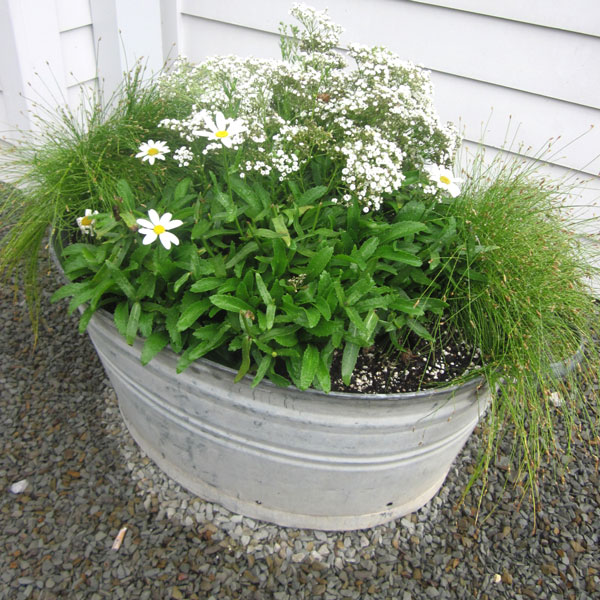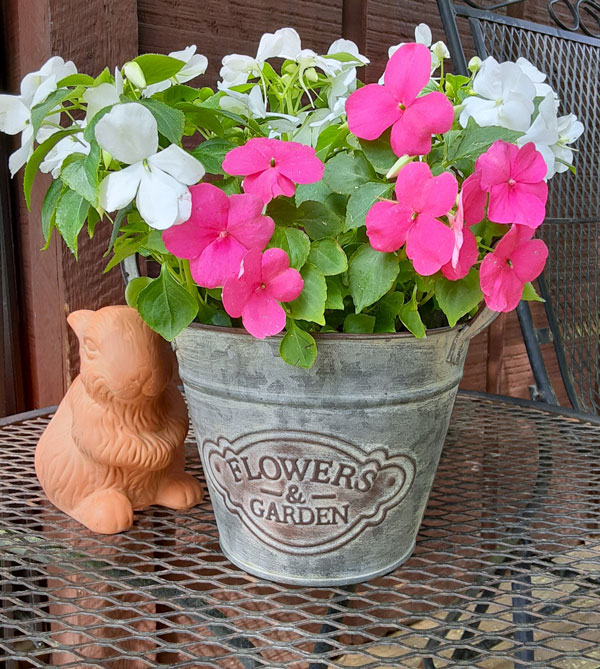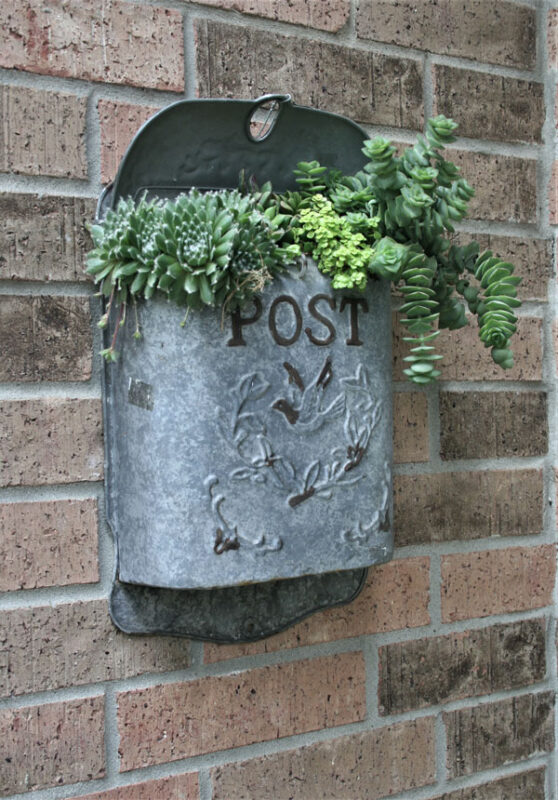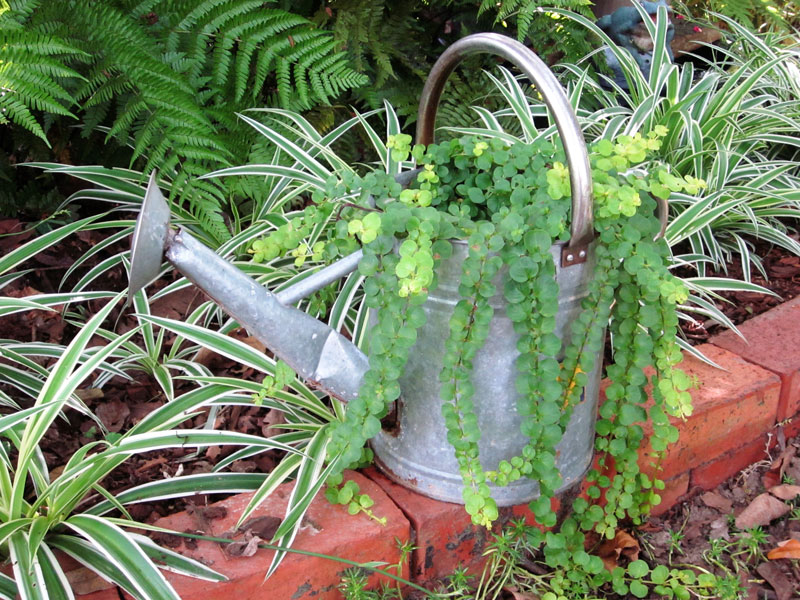Putting petals to metal – by Diane Morey Sitton

To some gardeners, galvanized containers reinforce farmhouse style; to other gardeners, the soft gray patina of galvanized containers suggests industrial decor; still others, when seeing a galvanized pot inscribed with the French word fleurs, visualize flower markets on Parisian sidewalks.
But their ability to strengthen and influence garden style is only one asset of these versatile containers. Galvanized options are plentiful. There are drum-shaped containers perched on hairpin legs, ribbed cylinders shaped like sap buckets, traditional planter boxes, wall planters, tubs and buckets, not to mention the array of flea market finds including vintage watering cans. Galvanized oval- and rectangular-shaped troughs (large enough to grow mini-gardens) are readily available online in kit form.
Besides being versatile, galvanized containers are durable and resistant to rust. Furthermore, they won’t crack in freezing temperatures. If there’s any drawback, it’s metals’ tendency to retain heat. Avoid root stress in galvanized containers by placing the container in partial shade, inserting a plastic cache pot, or lining the pot with moss or bubble wrap at planting.
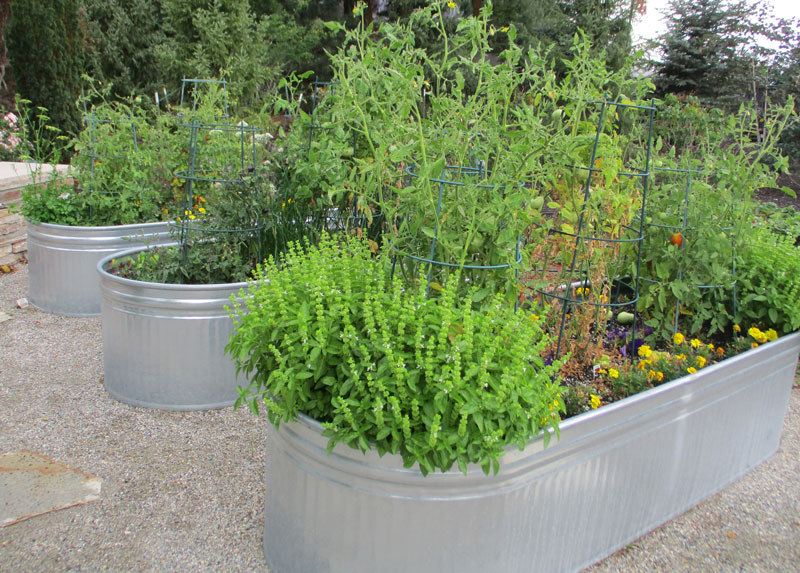
With their engaging shapes and various sizes, it’s easy to pair plants with galvanized pots. Create the welcoming simplicity of “farm fresh” by growing petunias in galvanized pots clustered on porch steps. Lavender and purple petunias harmonize especially well with the grayish luster of galvanized tubs and buckets. Create Victorian ambience by planting ferns in galvanized planter boxes. Flaunt southwest style by growing succulents in galvanized troughs. Change the look by filling the raised bed vessels with herbs and veggies. Filled with pollinator plants, trough gardens can also be used to attract bees, butterflies and hummingbirds.
As with any container, adequate drainage is essential to prevent boggy soil and root rot. Even if the container has drainage holes, you can improve drainage by adding a layer of gravel to the bottom of the pot at planting. If the container doesn’t have drainage holes, drill them yourself or use an inexpensive plastic cache pot that can be removed for watering.
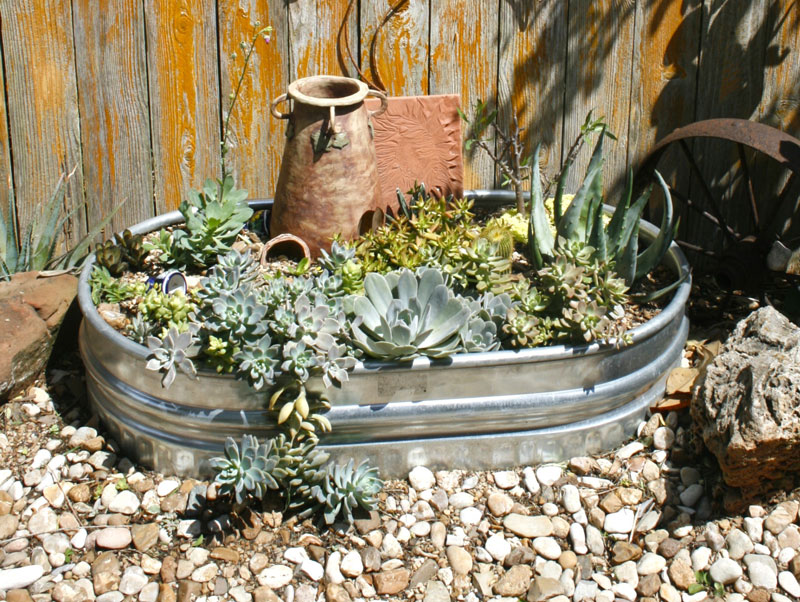
Container plants appreciate leg room, i.e., plenty of space for their roots to grow and stretch. They also appreciate high-quality potting mixes that won’t compact, watering as needed, and routine feeding with a balanced fertilizer.

